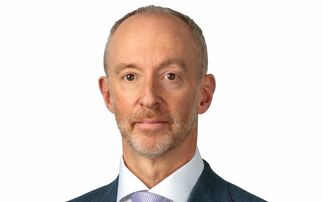
How investors can reform markets and help combat climate change.
Some years ago, we had an ESG lightbulb moment. For all the good we managed to achieve through our micro-level corporate engagements, they would be meaningless if we failed to address existential market failures at the macro level.
The answer was to find a way of helping to reform the market: the playing field on which various financial participants act - from pensioners and savers, to institutional investors, banks and asset owners, to regulators, credit ratings agencies and index providers. But achieving this is no mean feat. To make it happen requires diplomacy, as well as deep systems knowledge and understanding - of how complex financial markets are, how it constantly evolves and changes, and an awareness of the dangers of unintended consequences.
As Donella H. Meadows, American environmental scientist and author of Thinking in Systems: A Primer, explains: "A system is a set of things - people, cells, molecules, or whatever - interconnected in such a way that they produce their own pattern of behaviour over time. We know a tremendous amount about how the world works, but not nearly enough. Our knowledge is amazing; our ignorance even more so. We can improve our understanding, but we can't make it perfect."
As stewards of our clients' capital, we have much of the knowledge, the influence and the foresight required to create lasting economic and social change. Finance flows through every sector and every industry; there is not a business or commercial activity that isn't touched by it. By definition, our influence sprawls and extends across them all. Investors are therefore uniquely positioned to instigate system-wide change.
However, Rick Stathers, senior ESG analyst and climate change specialist at Aviva Investors, believes most corners of finance underestimate the interconnected effects of climate change. "Economists and investors simply assume that X degrees of heating will deliver Y per cent of GDP loss, and fail to factor in migration and value chain implications or the increasing risk that going beyond 1.5 degrees Celsius will trigger climate tipping points and increased heating," he explains.
A few examples illustrate how meaningful systems change can be achieved.
First is a coalition of private and public sector organisations that we helped convene in November 2019. The initiative calls for the creation an International Platform for Climate Finance (IPCF) which would produce a comprehensive strategy to finance the objectives of the Paris Agreement on positive climate change. Worryingly, there is currently no coherent financing plan - just a series of independent pledges and commitments.
This is curious given the investment required; the broad changes to the economy implied; and enormous efforts so far from a significant number of outstanding climate finance leaders.
The initiative and its ambition are still a work-in-progress. Having already helped fuel key policy discussions, the proposed IPCF would:
Bring together financial institutions (e.g., banks, insurers, investment managers) with those that shape the markets to produce a global finance transition strategy.
Offer technical assistance to developing countries seeking to produce capital raising plans for their nationally determined contributions (NDCs);
Promote - and measure - ever greater flows of climate finance by all financial institutions into the areas where they are needed most.
Produce an annual report analysing the efficiency, effectiveness and consistency of the various international initiatives on climate finance.
Next up is the World Benchmarking Alliance (WBA). Its mission, influenced by our vision, is to "build a movement to measure and incentivise business impact towards a sustainable future that works for everyone".
To achieve this, it has identified seven key transformations required to put society onto a more sustainable path. To help create a race-to-the-top and create transparency, the WBA has created a series of benchmarks to assess 2,000 of the world's most influential companies , ranking and measuring them relative to the sustainable development goals (SDGs) as well as human rights issues. These benchmarks are free to access and use and provide invaluable insight for investor decision making and holding companies to account.
The Corporate Human Rights Benchmark, created in 2013, is one of the WBA's key initiatives. By using the competitive nature of markets, it challenges 230 global companies to embed human rights into their operations and culture. Eight years on from inception, the benchmark is widely supported by companies, governments, investors and civil society.
Steve Waygood, chief responsible investment officer at Aviva Investors, sees initiatives like these as not only a fiduciary duty of institutional investors to their shareholders, but also a key responsibility to act in the best interests of clients. Not pushing for change in the face of climate change, which he describes as "an existential crisis and the greatest market failure in history", would be a serious dereliction of duty.
Influencing policy, the market environment and the incentive structures driving decision making is hugely complex. It is a never-ending quest and falls under what we call ‘macro stewardship'. And while we will never stop engaging with companies and shaping the ESG characteristics of other assets we manage on behalf of our clients, it is by complementing these efforts with systems-wide change initiatives that we can be more confident (and hopefully proud) of any positive impact.
Our hope is that competitors and other key financial actors also take up the baton, because real systems change requires a critical mass. The more voices the better.
Note: ESG and Climate related engagement, goals and exclusions can vary at the investment strategy and portfolio level depending upon country, jurisdiction and individual client needs.
Full version on website: https://www.avivainvestors.com/en-gb/responsibility/climate-action/insights/climate-policies-and-market-reform/
Get in touch
If you would like to find out more about Aviva Investors' products and services, please visit our website, contact your usual sales representative or contact us through the details below:
Website: www.avivainvestors.com
Tel: 020 7809 6521*
Email: [email protected]
*Calls may be recorded for training and monitoring purposes, and to comply with applicable law and regulations.
Important information
Except where stated as otherwise, the source of all information is Aviva Investors Global Services Limited (AIGSL). Unless stated otherwise any views and opinions are those of Aviva Investors. They should not be viewed as indicating any guarantee of return from an investment managed by Aviva Investors nor as advice of any nature. Information contained herein has been obtained from sources believed to be reliable but has not been independently verified by Aviva Investors and is not guaranteed to be accurate. Past performance is not a guide to the future. The value of an investment and any income from it may go down as well as up and the investor may not get back the original amount invested. Nothing in this material, including any references to specific securities, assets classes and financial markets is intended to or should be construed as advice or recommendations of any nature. This material is not a recommendation to sell or purchase any investment.
In Europe this document is issued by Aviva Investors Luxembourg S.A. Registered Office: 2 rue du Fort Bourbon, 1st Floor, 1249 Luxembourg. Supervised by Commission de Surveillance du Secteur Financier. An Aviva company. In the UK Issued by Aviva Investors Global Services Limited. Registered in England No. 1151805. Registered Office: St Helens, 1 Undershaft, London EC3P 3DQ. Authorised
229823 - 30/09/2022













